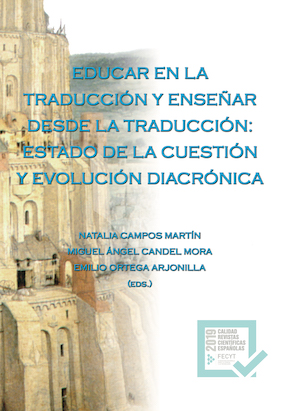How corpora can assist legal translation learners: The GENTT TransTools Corpora platform and Sketch Engine
DOI:
https://doi.org/10.7203/qf.24.16297Keywords:
legal translation, legal translation teaching, legal translation teaching with corpora, ad-hoc corpora, disposable corpora Abstract
Abstract
This paper analyses the application of corpora to the teaching of legal translation in higher education settings combining the use of both the GENTT TransTools Corpora platform and Sketch Engine. A review of previous teaching experiences with legal textual corpora is presented, followed by a descriptive overview of GENTT’s research group 10 years’ experience using corpus in the classroom with a translation training approach that promotes scaffolded education as well as constructive and cooperative situated learning. These suggest that classroom activities with monolingual, multilingual and translated corpora of legal documents may prove useful to students of legal translation, improving their strategic competence and providing them with text models and patterns to be used as terminological, textual and legal/conceptual references.
 Downloads
Downloads
Downloads
Published
How to Cite
-
Abstract891
-
PDF (Español)678
Issue
Section
License
 Este obra está bajo una licencia de Creative Commons Reconocimiento-NoComercial-SinObraDerivada 4.0 Internacional.
Este obra está bajo una licencia de Creative Commons Reconocimiento-NoComercial-SinObraDerivada 4.0 Internacional.
Authors who publish with this journal agree to the following terms:
- Authors retain copyright and grant the journal right of first publication with the work simultaneously licensed under a Creative Commons Attribution License that allows others to share the work with an acknowledgement of the work's authorship and initial publication in this journal.
- Authors are able to enter into separate, additional contractual arrangements for the non-exclusive distribution of the journal's published version of the work (e.g., post it to an institutional repository or publish it in a book), with an acknowledgement of its initial publication in this journal.
- Authors are permitted and encouraged to post their work online (e.g., in institutional repositories or on their website) prior to and during the submission process, as it can lead to productive exchanges, as well as earlier and greater citation of published work (See The Effect of Open Access).




